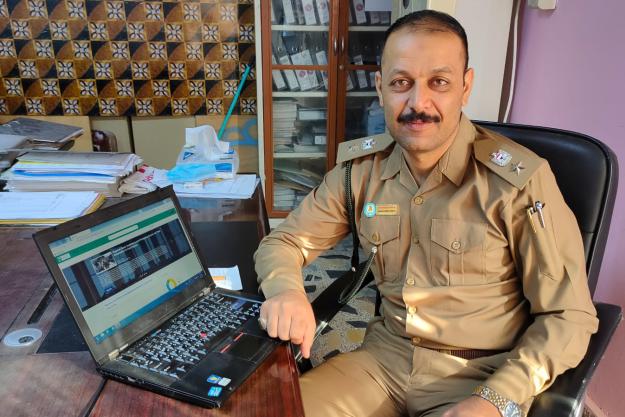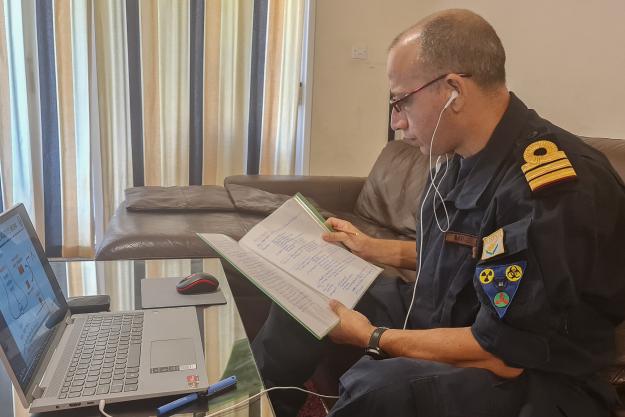First Responders from all five OPCW regional groups increased their skills in handling emergencies involving chemical weapons and toxic industrial chemicals during the Basic Assistance and Protection Course for First Responders held online from 11 to 15 October. The course was organised by the Organisation for the Prohibition of Chemical Weapons (OPCW) and the Republic of Korea's CBRN (Chemical, Biological, Radiological and Nuclear) Defence Command of the Ministry of Defence.
Commander of the CBRN Defence Command, Brigadier General Lee Dae-Wee, underscored his country's readiness to continue to contribute to the goal of the Chemical Weapons Convention - a world permanently free of chemical weapons. He stated: "In this context and considering the significance of our obligation related to assistance and protection against chemical weapons (Article X), the Republic of Korea has hosted the International Assistance and Protection Course every year since 2005".
The Senior Programme Officer from the OPCW's Assistance and Protection Branch, Mr Anton Martyniuk, underlined: "The OPCW places a high priority on developing regional capacities to respond to chemical attacks or incidents involving toxic industrial chemicals. Towards that goal, we have long enjoyed strong support from the Republic of Korea. Such collaboration is essential for the full implementation of Article X of the Chemical Weapons Convention - assistance and protection against chemical weapons."

Originally intended to build the capacity of OPCW Member States from Asia, the course generated high interest in other regions. The training was therefore made available to military, police, and other emergency responders from all five OPCW regional groups: Africa, Asia, Latin America and the Caribbean (GRULAC), Eastern Europe, and Western European and Other States (WEOG).
The participants learned about chemical warfare agents, theoretical and practical aspects of detection, identification, individual protection, as well as decontamination and treatment techniques used during chemical incidents.
The course attracted 41 participants from the following 20 OPCW Member States: Bangladesh, Barbados, Cambodia, Cyprus, Georgia, India, Iran, Iraq, Italy, Jordan, Myanmar, Nigeria, Oman, Pakistan, Philippines, Qatar, Sri Lanka, Timor-Leste, Uganda, and Zimbabwe.

Background
As the implementing body for the Chemical Weapons Convention, the OPCW, with its 193 Member States, oversees the global endeavour to permanently eliminate chemical weapons. Since the Convention's entry into force in 1997, it is the most successful disarmament treaty eliminating an entire class of weapons of mass destruction.
Over 98% of all declared chemical weapon stockpiles have been destroyed under OPCW verification. For its extensive efforts in eliminating chemical weapons, the OPCW received the 2013 Nobel Peace Prize.






